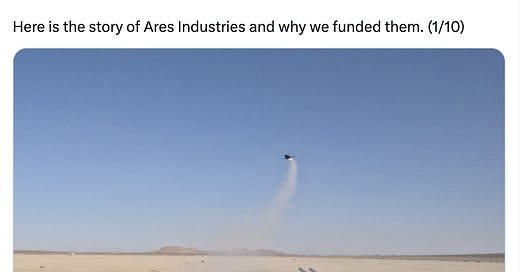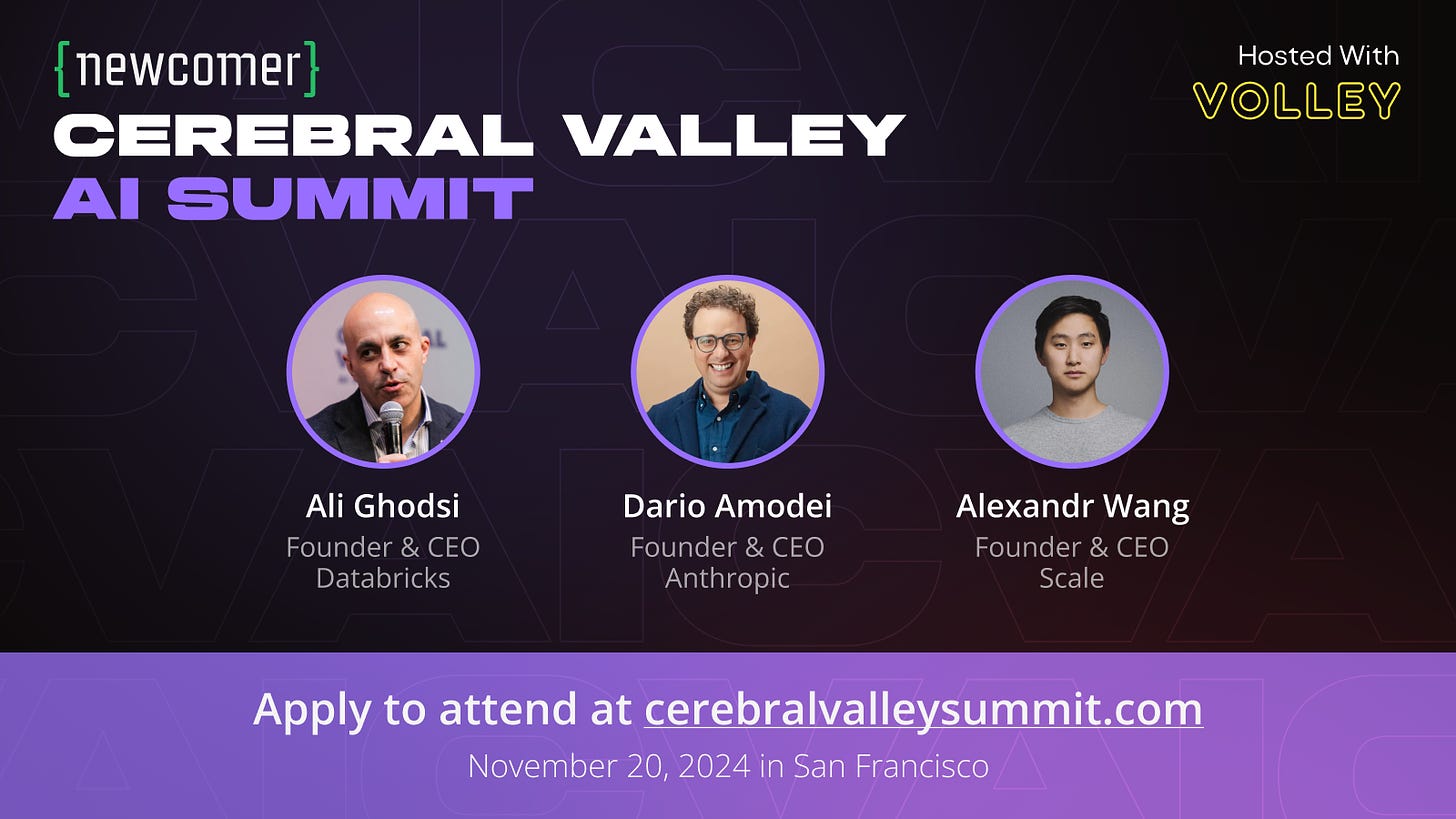YC Embraces Missiles…Tan Goes Big With Smaller Batches…Newsom’s AI Dilemma
Even with four batches a year, YC annual startups expected to total below 749 peak in 2021
The Main Item
Y Combinator’s Latest Offensive to Test AI-Driven Hot Streak
Y Combinator’s Demo Days next week will feature the accelerator’s first weapons company, Ares Industries, as defense tech, other types of hard-tech, and healthcare companies start to steal a little buzz from the enterprise AI and coding startups that still dominate the class.
“AI as a meta-trend is obviously the biggest driver by far,” said YC managing director Jared Friedman, who mentioned that vertical AI agents, AI coding, AI phone calls, consumer AI, and robotics are some of the hot subcategories under the AI umbrella.
Deals are starting to come in for the hottest prospects in the cohort of around 250 founder teams. We heard from multiple sources that Wordware, which is building a developer environment for creating AI agents, has received offers from multiple VCs, with one at a $140 million post-money valuation. One source said they got an additional offer at at a valuation over $200 million. That’s far above the $25 million post-money YC deal that’s become standard for many founders.
Among the defense-tech plays, Theseus, which is building software and hardware for drones, received offers from First Round Capital and Initialized, sources familiar with the situation told me, but ultimately took First Round’s term sheet.
Another YC startup, Diode Computers, which automates hardware design, raised from General Catalyst, according to two investors with knowledge of the deal. It remains to be seen how enthusiastic VCs are at following YC’s lead and investing companies like Ares, which makes cruise missiles.
Other YC companies buzzy with VCs:
a legal tech company (with an extremely confusing name to list amongst a bunch of AI companies), called “&AI”
Spur, a startup building an AI quality assurance engineering agent
Melty, an open-source AI code editor
Maven general partner Sara Deshpande noted in a call that around 10% of companies were building in the healthcare sector this time around, and that she was pleasantly surprised to see a few consumer-focused AI startups. “It seems like there’s a receptivity and openness to founders building in consumer,” she said.
YC’s current summer batch is roughly the same size as the last few batches at just over 250 companies.
More Batches at Smaller Sizes
YC has been in a multi-year, multi-leader process of agonizing over how big it should be.
Under Geoff Ralston’s leadership through the pandemic, YC went big and remote with 400 or more companies in a batch.
When Garry Tan took over, he seemed to be taking YC back to basics with in-person batches and smaller batch sizes. Tan has been actively trying to fend off accusations that YC has lost its juice with ultra-elite founders.
Now, though, YC is making another play at going big with four (albeit smaller) batches a year. The total number of startups a year is expected to hover around 500.
Other Valley accelerators, notably Neo, have kept their cohort sizes smaller and seen some benefits from that. The Neo Scholar program, which attracts talented builders who are still undergrads, was the exclusive hiring database for OpenAI’s ChatGPT team’s recruitment of college graduates last year.
Group partners explained the new approach as a way to invest in great teams that wouldn’t necessarily be ready for YC on the half-year cycles. “Now no matter when you’re starting your company, there will be a YC batch you can join,” group partner Aaron Epstein wrote on X.
YC still enjoys loyalty from tier-one funds. General Catalyst, for example, has been writing small checks into around 20 startups from each YC cohort.
Tan’s core challenge now is to maintain that loyalty by showing he can keep the hit rate high even with four classes and 500 companies a year.
CVAI
Apply to Attend the Cerebral Valley AI Summit
We announced last week that Anthropic CEO Dario Amodei, Scale CEO Alexandr Wang, and Databricks CEO Ali Ghodsi will be speaking at the Cerebral Valley AI Summit on November 20 in San Francisco.
You can apply to attend on the Cerebral Valley AI Summit website. If you are interested in sponsoring or have any other questions about the event, email newcomer@newcomer.co.
Five Notable Deals
World Labs, Akur8, AtoB, Engine, Flink
Startups aiming to improve operations in industries including trucking, shipping, and insurance landed rounds over $100 million this week as investors look for AI opportunities in old-school enterprises. World Labs, meanwhile, showed that the sky is still the limit when it comes to backing the best of the best AI researchers.
AI legend Fei-Fei Li’s World Labs, a spatial intelligence startup building “Large-World Models” to interact in 3D space, came out of stealth with $230 million in funding featuring a who’s who of Valley heavyweights. A16z, NEA, and Radical Ventures led, and a host of other firms and angels participated, including Marc Benioff, Jim Breyer, Ron Conway, Jeff Dean, Geoffrey Hinton, Reid Hoffman, and Andrej Karpathy, among others.
Akur8, a machine learning-powered insurance pricing and procurement startup, raised a $120 million Series C led by One Peak, with participation from Partners Group.
AtoB, which helps to manage payments for trucking companies, raised $130 million in Series C funding. The round, which was a combination of equity and debt, was co-led by General Catalyst and Bloomberg Beta with participation from Mastercard, among others.
Corporate lodging booking firm Engine, formerly Hotel Engine, raised $120 million in Series C funding led by Permira Growth Opportunities.
German rapid delivery startup Flink raised $150 million in new funding that puts its valuation just under $1 billion, down from its peak of $5 billion in December 2021. BOND, Mubadala, Northzone, and supermarket giant REWE all participated in the round.






